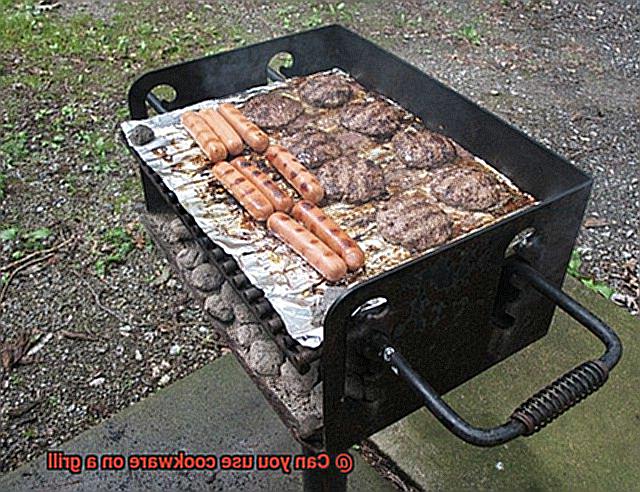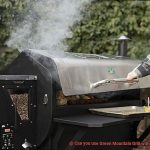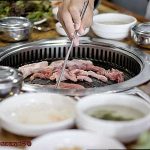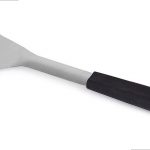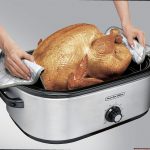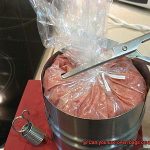Are you tired of the same old grilled dishes and want to mix things up? Do you miss the convenience of your trusty cookware when it’s time for some outdoor cooking? Fear not, because the answer to whether or not you can use cookware on a grill is a resounding yes.
While grilling may be synonymous with cooking directly on the grill grates, there are plenty of reasons why you might want to opt for your pots and pans instead. Perhaps you’re whipping up a delicate dish that can’t handle direct heat, or maybe you need to cook something in sauce or marinade without it dripping into the flames. Or, it could simply be that you prefer the precision and control that comes with cooking in a pot or pan.
But before you start tossing all your cookware onto the grill alongside your meat, there are a few crucial things to keep in mind. In this post, we’ll explore everything from what types of cookware are safe to use on a grill to how to protect them from damage. Plus, we’ll share some helpful tips for taking your outdoor cooking game to new heights.
So whether you’re a seasoned griller looking to expand your repertoire or a newbie just dipping their toes into outdoor cooking, keep reading for all the info you need about using cookware on a grill.
Contents
What Cookware is Suitable for Grilling?
Grilling is a culinary art form that requires the right tools to produce mouth-watering meals. Cookware is an important aspect of grilling that should not be overlooked. However, not all cookware is suitable for use on a grill. The intense heat and direct flames can damage or warp certain materials, and some materials may even pose a safety hazard when exposed to open flames.
To get the best results when grilling, it’s crucial to choose cookware made of cast iron, stainless steel, or heavy-duty aluminum. These materials are durable and can withstand the high temperatures of the grill without warping or melting. Cast iron cookware is an especially excellent choice for grilling because it retains heat well and creates attractive grill marks on food.
It’s worth noting that not all types of cookware made from these materials are suitable for grilling. Non-stick coatings can release toxic fumes when exposed to high heat, making them unsafe for use on grills. Additionally, lightweight aluminum pans may warp or buckle under the intense heat of the grill.
When selecting cookware for grilling, always choose pieces that are specifically designed for use on a grill. Many brands offer grilling-specific pans and skillets that have unique features such as ridges for creating grill marks or heat-resistant handles that are easy to grip.
In addition to the right material, size and shape matter when choosing cookware for grilling. The cookware should fit comfortably on the grill grates without blocking airflow or causing flare-ups. A small cast iron skillet or a large wok would be ideal for grilling vegetables or stir-fry dishes.
Choosing the Right Size and Shape of Cookware
Grilling is an art form that requires the right tools to create a culinary masterpiece. One of the most important tools is choosing the right size and shape of cookware. If you’re a grilling enthusiast, then you know that overcrowding or touching the sides can cause uneven cooking, melted handles, or even a fire hazard. Therefore, choosing the right size and shape of cookware is essential for a successful and delicious meal.
Firstly, ensure that your cookware fits comfortably on the grill grates without overcrowding or touching the sides. An overcrowded grill can lead to uneven cooking and ruin your food. So, take some time to measure your grill grates and choose cookware that fits comfortably.
Secondly, consider the shape of your cookware. For example, a grill basket or grilling tray with holes is perfect for vegetables or small pieces of meat as it allows for even cooking and prevents pieces from falling through the grates. If you’re grilling larger cuts of meat or fish, then a cast iron skillet or Dutch oven can be used to retain heat and create a crusty sear.
Lastly, the depth of your cookware is also important. Shallow pans are perfect for items that cook quickly such as shrimp or scallops. On the other hand, deeper pots are better suited for soups or stews that require more liquid and longer cooking times.
Precautionary Measures to Take When Using Cookware on a Grill
The smoky flavor and the charred texture of grilled food are irresistible. However, grilling is not just about throwing some meat on the grill and hoping for the best. It requires careful preparation and precautions, especially when using cookware on a grill.
To ensure safety and prevent damage, here are some precautionary measures you should take when using cookware on a grill:
Choose The Right Cookware
Not all cookware is created equal, and not all of them can handle the high heat and direct flames of a grill. To avoid accidents, it’s best to use cookware specifically designed for grilling. Cast iron, stainless steel, or aluminum are ideal materials for cookware that can withstand the high heat.
Prepare The Cookware Properly
Before placing cookware on the grill, be sure to clean it thoroughly and coat it with oil or cooking spray to prevent sticking. Preheating the cookware before adding food will also help prevent sticking and ensure even cooking.
Use Heat-Resistant Gloves Or Mitts
When placing cookware on the hot grill, always use heat-resistant gloves or mitts to protect your hands from burns or injuries.
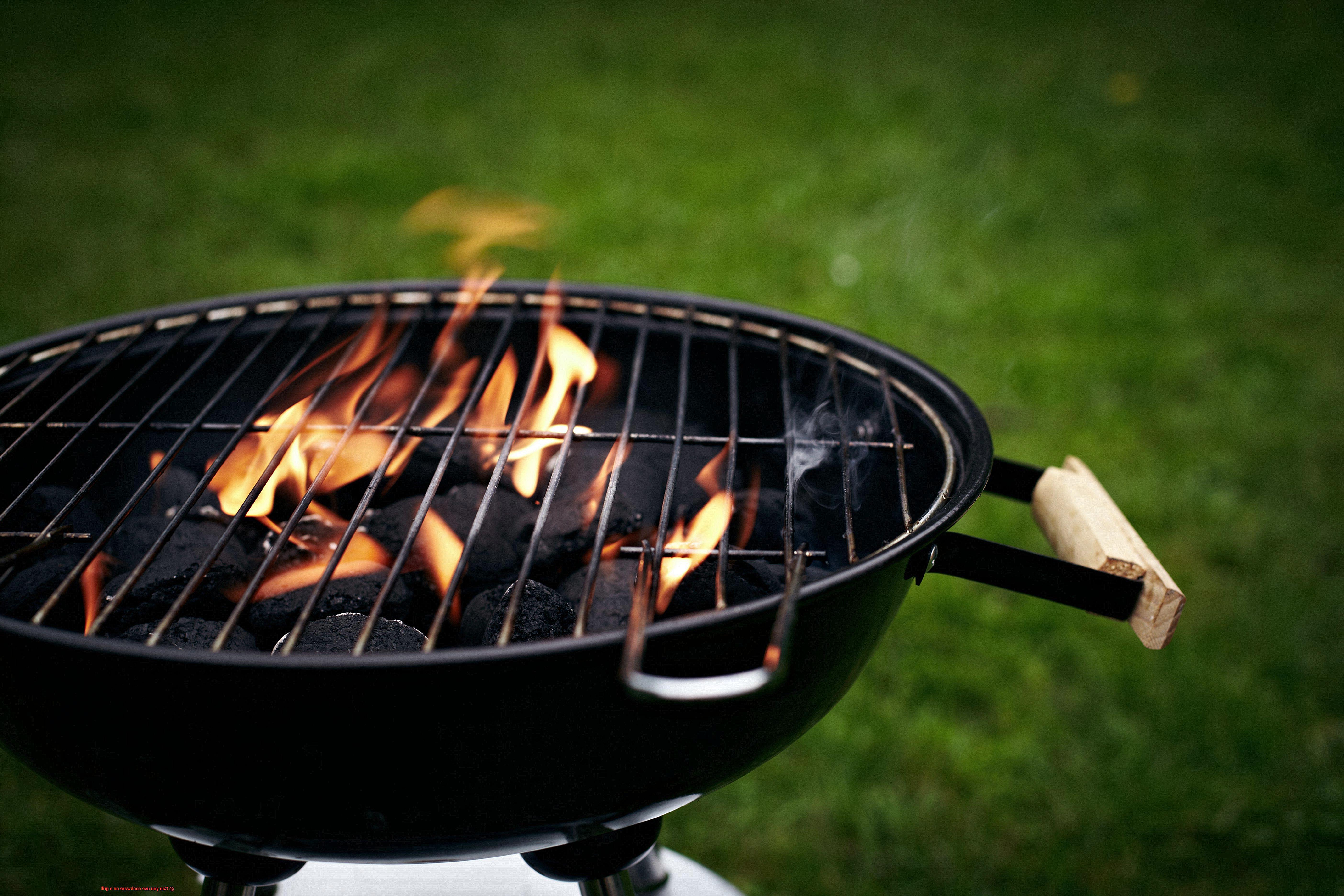
Use Tongs Or A Spatula To Move The Cookware
Never use your bare hands to move cookware around on the grill as it can result in burns or injuries. Instead, use tongs or a spatula to move the cookware around.
Keep A Close Eye On The Food And Adjust The Temperature As Needed
It’s important to keep a close eye on the food when cooking with cookware on a grill and adjust the temperature as needed. This will help prevent burning or overcooking of the food and ensure that it’s cooked evenly.
Let The Cookware Cool Down Before Cleaning It
After removing the cookware from the grill, let it cool down before cleaning it with warm soapy water. Using cold water on hot cookware can cause it to warp or crack, which can be dangerous.
Benefits of Using Cookware on a Grill
One of the primary benefits of using cookware on a grill is that it allows you to cook delicate foods that might otherwise fall apart or stick to the grates. Whether it’s fish fillets, small vegetables like cherry tomatoes, or smaller cuts of meat, using a grill basket or skewers ensures that your food stays intact and doesn’t become lost to the fire below.
Another advantage of using cookware is that it gives you greater control over the temperature and cooking time of your food. Pans and griddles can be used to cook foods that require even heat distribution, such as pancakes or eggs. And pots can be used to simmer sauces or stews right on the grill for easy outdoor cooking.
But perhaps the best benefit of using cookware on your grill is how it can help reduce mess and clean up time. Grilling can be messy, but using cookware such as foil packets or baking sheets can help contain drips and spills, making clean up much easier and faster. This means you can spend more time enjoying your delicious meal with friends and family.
Using cookware on your grill also expands your grilling repertoire. With a variety of pots, pans, and tools designed for grilling, you can experiment with new recipes and techniques. Why not try smoking meats in a cast iron skillet or baking a dessert in a Dutch oven? The possibilities are endless.
To make sure you get the most out of using cookware on your grill, remember to choose the right cookware, prepare it properly, use heat-resistant gloves or mitts, keep a close eye on the food and adjust the temperature as needed, and let the cookware cool down before cleaning it.
Different Types of Cookware Ideal for Grilling
When it comes to grilling, the possibilities are endless. While grill grates are a staple for outdoor cooking, using different types of cookware can expand your options and enhance your grilling experience. Here are five types of cookware that you can use for grilling:
Cast Iron Skillet
A cast iron skillet is a popular choice for grilling cookware because it can withstand high heat and distribute it evenly throughout the pan. This makes it perfect for searing meats or cooking vegetables, and it adds a delicious smoky flavor to your food that you just can’t achieve with regular stovetop cooking.
Grill Basket
A grill basket is a versatile tool for cooking small or delicate foods that might fall through the grill grates. Made of stainless steel or aluminum, these baskets come in various shapes and sizes and can be used for stir-frying vegetables or cooking seafood.
Pizza Stone
For pizza lovers, a pizza stone can be used on the grill to create a crispy crust and perfectly melted cheese. Simply place the pizza stone on the grill grates and let it heat up before placing your pizza on top. This method will give you an authentic wood-fired pizza taste without the need for a wood-burning oven.
Grill Pan or Griddle
Specialized pans designed specifically for grilling, such as grill pans or griddles, have ridges or grooves to mimic the look of grill marks and allow for easy draining of excess fat or liquids. These pans are great for cooking burgers, steaks, vegetables, and even pancakes.
Dutch Oven
A Dutch oven made of cast iron or enamel-coated cast iron is perfect for slow-cooking stews, soups, or even baking bread on the grill. It can withstand high heat and distribute it evenly throughout the pot, making it an excellent option for outdoor cooking.
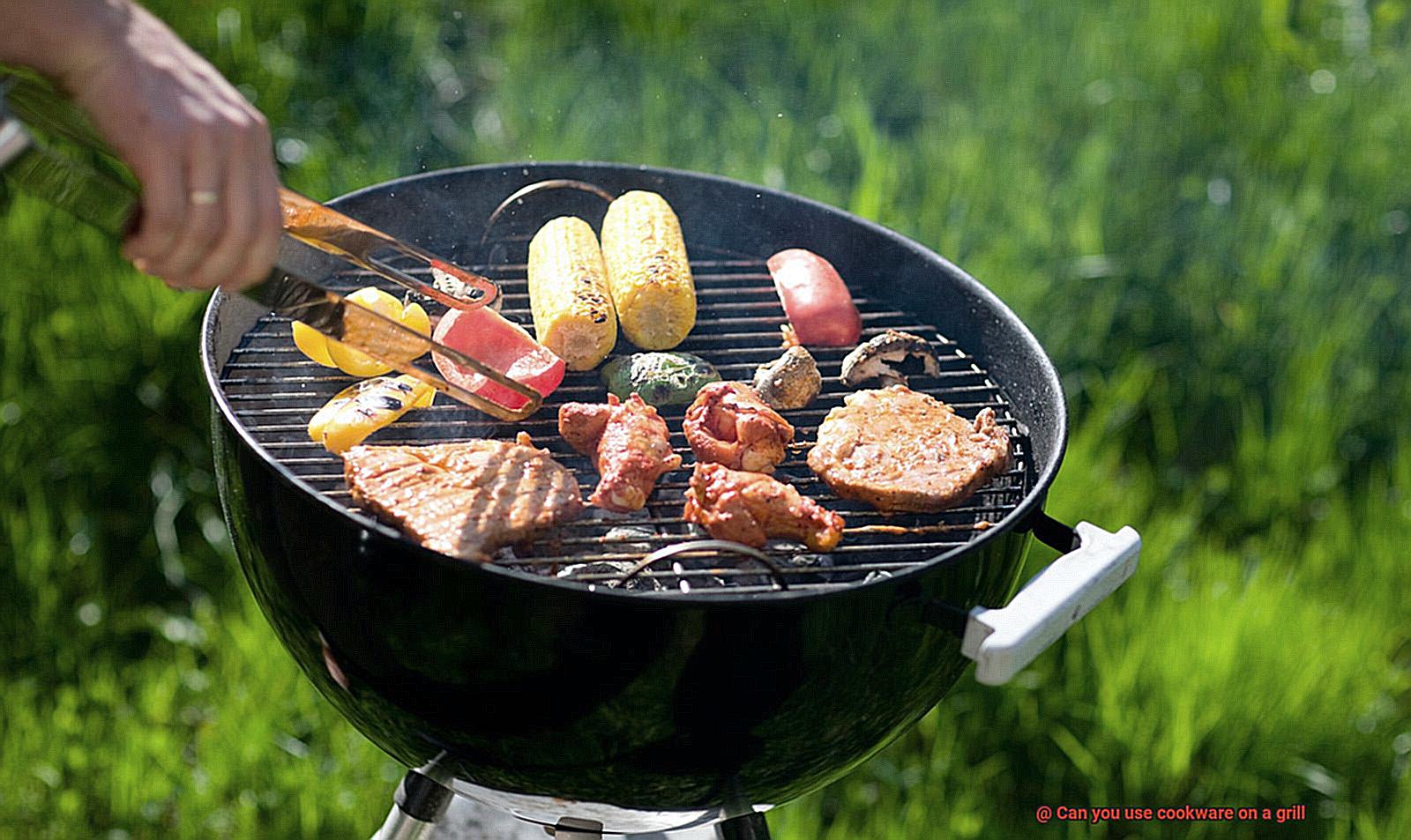
Tips for Cleaning and Maintaining Your Grill Cookware
Grill cookware can be a game-changer when it comes to grilling, but it’s important to note that not all cookware is suitable for use on a grill. Before using any cookware on your grill, make sure it is labeled as grill-safe. Once you have the appropriate cookware, it’s essential to properly clean and maintain it to ensure its longevity.
Clean Your Cookware After Every Use
Leaving food and grease to sit on the surface can cause permanent stains and damage. To prevent rusting, corrosion, and flavor contamination, start by scraping off any food remnants or ashes with a grill brush or scraper. Then wash the cookware with warm soapy water and a non-abrasive sponge or cloth. Avoid using harsh chemicals or abrasive materials as they can damage the surface of the cookware.
Season Your Grill Cookware Regularly
Seasoning helps prevent rusting, improves non-stick properties, and enhances the flavor of your food. To season your grill cookware, coat it with a thin layer of vegetable oil or cooking spray and heat it on the grill for about 30 minutes. Let it cool down before wiping off any excess oil.
Avoid Using Abrasive Cleaners or Steel Wool
Abrasive cleaners or steel wool can scratch and damage the surface of your cookware. Instead, opt for non-abrasive cleaners and soft sponges. Be gentle when cleaning your cookware to avoid damaging the surface.
Oil Your Grill Cookware Before and After Each Use
Oiling your cookware before and after each use will help prevent food from sticking and make cleanup easier. Simply rub a small amount of oil onto the surface of your cookware with a paper towel or cloth. Make sure you use an oil with a high smoke point, such as vegetable oil or canola oil.
Store Your Grill Cookware Properly
After cleaning your cookware, make sure it’s completely dry before storing it in a cool, dry place away from direct sunlight or moisture. If possible, cover it with a lid or plastic wrap to prevent dust and debris from accumulating on the surface.
How to Use Your Grill and Cookware Safely
Grilling is a popular and enjoyable way to cook food, but it’s important to prioritize safety above all else. If you want to use cookware on your grill, there are a few crucial things you need to keep in mind. Let’s go over five helpful tips for using your grill and cookware safely.
Tip 1: Choose the Right Cookware
One of the most important things to consider when using cookware on a grill is selecting the right type of cookware. Not all cookware can withstand the high temperatures and direct flames of a grill. Cast iron and stainless steel are some of the best options for grilling as they can handle the heat and won’t shatter or crack like glass or ceramic.
Tip 2: Clean Your Grill and Cookware
Before placing any cookware on your grill, make sure that both the grill grates and the cookware are clean and dry. Any leftover food or moisture can cause flare-ups, which can damage your cookware or even start a fire. Take the time to thoroughly clean both surfaces before cooking.
Tip 3: Use Heat-Resistant Gloves
Cookware on a grill can get scorching hot, which is why it’s essential to use heat-resistant gloves or oven mitts when handling it. These will protect your hands from burns and allow you to move the cookware as needed without risking injury.
Tip 4: Monitor the Temperature
Grilling requires close attention to temperature, and this is especially true when using cookware on a grill. Keep an eye on the heat, ensure that it’s set correctly, and watch for any flare-ups that could damage your cookware or pose a risk to your safety. If necessary, adjust the heat accordingly.
Tip 5: Never Leave Cookware Unattended
Finally, it’s critical to never leave your cookware unattended while it’s on the grill. This is true whether you’re cooking with an open flame or indirect heat. Always keep an eye on your cookware and have a fire extinguisher nearby in case of an emergency.
Common Mistakes to Avoid When Cooking with Grill Cookware
Grilling with cookware is a great way to do just that, but there are some common mistakes that can ruin your experience. Don’t worry, as an expert on the topic, I’ve got you covered. Here are some tips on how to avoid these mistakes and cook like a pro.
Firstly, using the wrong cookware can cause major problems. Not only can it damage your cookware but it can also lead to injury if it fails while cooking. Make sure you only use cookware that is labeled as safe for grilling, to avoid any mishaps.
Another mistake people make is not preheating their cookware before placing it on the grill. This can lead to uneven cooking and sticking of your food. So, always preheat your cookware by placing it on the grill for a few minutes before adding your food.
Using too much oil or cooking spray is another common mistake. While these can help prevent sticking, overuse could result in flare-ups and even cause a fire. To avoid this problem, use only a small amount of oil or cooking spray as needed.
Finally, not properly cleaning your grill cookware after each use can affect the flavor of your food and lead to foodborne illness. Always clean your grill cookware thoroughly after each use by using hot soapy water and scrubbing with a non-abrasive scrubber.
In summary, when cooking with grill cookware, make sure you use the right kind of cookware, preheat it before cooking, use only a small amount of oil or cooking spray, and clean it thoroughly after each use. These tips will ensure your food is cooked to perfection and your cookware remains in good condition for future grilling adventures.
WNBWpKCm0Zc” >
Conclusion
In conclusion, using cookware on a grill is not only possible but can also enhance your grilling experience.
From cast iron skillets to foil packets and grilling baskets, there are various options available to make cooking on the grill easier and more versatile. However, it’s important to choose the right type of cookware that can withstand high temperatures and direct flames.
With the right tools and techniques, you can enjoy delicious grilled meals with less hassle and more flavor.

